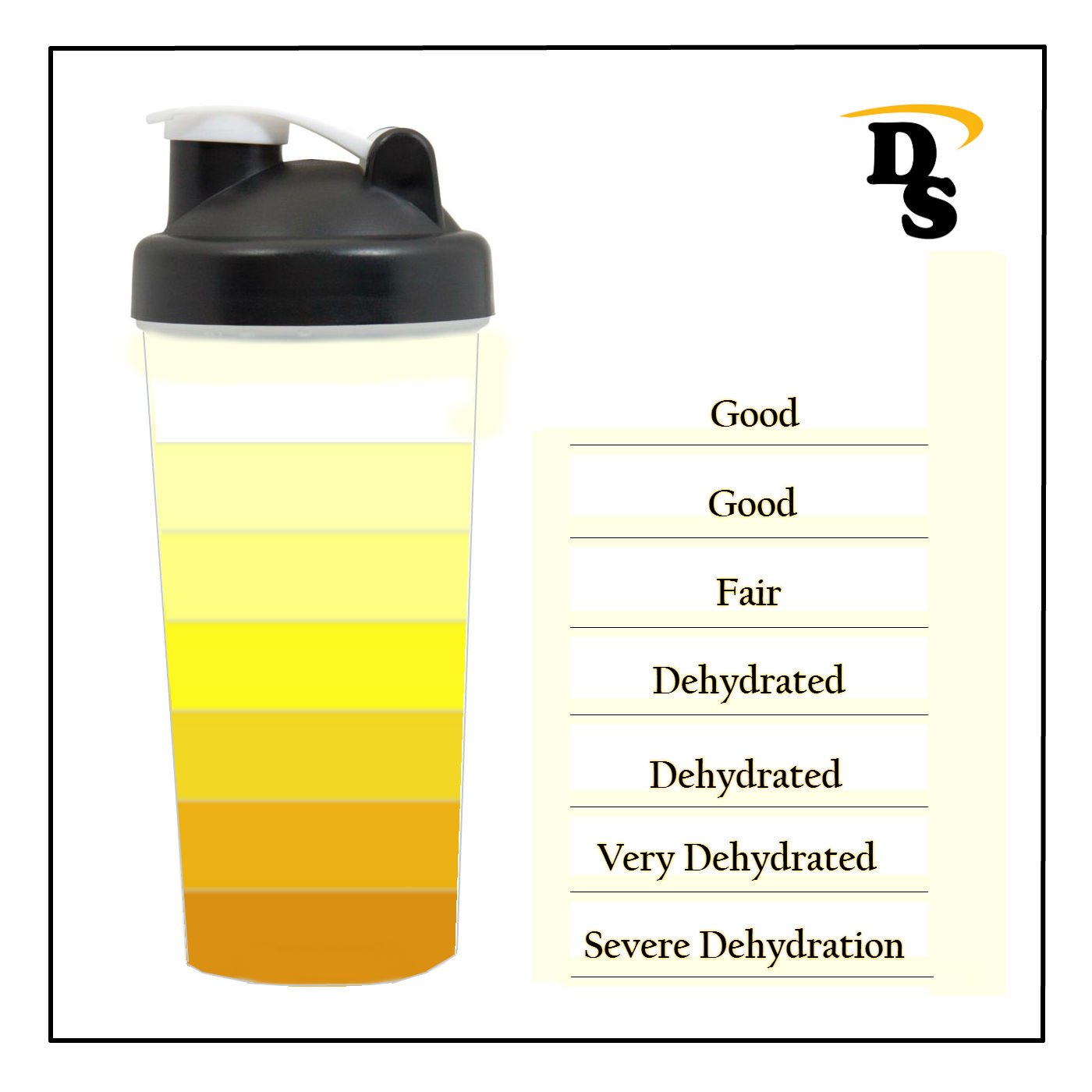This doodle video explains dehydration nicely. It can range from mild to severe and our bodies give us signals which become more pronounced when we are further along the dehydration scale.

I love this infographic as it sums up the top signs of telling when we haven’t drunk enough water and what it does to your body. You see, dehydration can be more serious than you think.
Now check out this infographic from Ready Nutrition which explains why hydration is so important, you’ll quickly see just how much your body needs water to function optimally.
What dehydration is doing to your body
Sometimes, especially when it comes to the most basic of things, we get complacent. As runners we need to take extra care we are not only taking care of our bodies through exercise and nutrition but also by watching our intake of water.
We’ve all felt dehydration at some stage in our lives. Remember how it feels? Lethargic. Loss of energy. Quicker heartbeat. Headaches. Sounding familiar? Here’s a quick snapshot of our bodies water content: our brain being 75% water, blood has 92% water, our bones 22% and our muscles 75%. It’s no wonder why we need to top up regularly, especially as we sweat it out every time we run.
Interesting fact: whilst running, the average person sweats between 0.8 – 1.4 liters per hour during workouts.
Signs of dehydration

As soon as you see, feel or notice these signs – don’t delay! Top up your bodies water and listen to the warning signals because they are there for a reason.
Even being just somewhat dehydrated affects your ability and can decrease your performance by 10% when a 2% drop in hydration is experienced.
The signs can start of moderate to mild where you may experience the following symptoms:
- Dizziness
- Foggy mind
- Muscle cramps
- Increased thirst
- Dryness of mouth/tongue swelling
- Heart palpitations
- Sluggish responses
- Less sweating
- Fainting
- Tingling in hands or feet
- Lower urine production
Watch out! The urine one is important as it’s a good, visual indicator of your body’s level of hydration. You can tell that if it's deeper yellow, you need to up the hydration. Check this pee color chart to keep in the loop!

What you didn’t know about dehydration…
- You may not even know your dehydrated
Dehydration can be something that sneaks up on you and before you know it, you are experiencing some dangerous warning signs. It can start with just a dry mouth or a slight cough before you move onto the more moderate forms. These mild signs include dizziness, dry lips, dark yellow urine and feeling lightheaded. The lesson here is not to ignore the feeling or thirst and those initial stages of dehydration.
- It happens differently for each person
Everybody is different and the rate that dehydration progresses at can vary from person to person. Some runners have more of a tendency to dehydrate quicker whereas others the process may take longer. Another aspect is that some medications can cause you to lose fluids quicker.
- Sometimes you need more than water
You’re feeling the signs of more severe dehydration and they are hitting hard. You may think that all you need is more water but sometimes, what you really need is something extra for that boost.
When we run in the heat, we release even more sweat and this perspiration contains more than just water. Sweat also includes chemicals from our bodies such as salt, sugar, ammonia and urea. Therefore, you need to hydrate on a wider range of things and by simply adding lemon, a pinch of salt or fruits to your water you can inject those lost elements back into your body.
- Your motor skills and mood are affected too
As runners we need to be coordinated and make full use of our motor skills which include agility, balance, power, reaction time, speed and coordination. As you can see, all of these aspects of your running will become seriously impinged. Even the most simplest of things; your ability to change direction can be effected when dehydration kicks in. Not only this but the lack of fluid encourages headaches, shaking, lethargy and more which impact your motor skills.
As running enthusiasts we therefore need to show even more care in this aspect of our health and performance. It will also bring your mood down
- It is possible to overhydrate too
Don’t do a full 360 and be overcautious by over-hydrating. Too much of any good thing won’t be good anymore and the same goes for life’s essentials.
Signs your dehydration is more serious

When you start noticing the following signs, it’s time to up the anti:
- Consistent vomiting for a day or more
- High temperature over 101 degrees
- Losing weight
- Lower urine content
- Diarrhea
- Weakness
If you ever experience any of the following, seek medical help immediately and check into your nearest A&E:
- Fever of more than 103 degrees
- Seizures
- Severe headache, confusion or lethargy
- Struggling to breath
- Chest or ab pains
- Haven’t urinated for the past 12 hours or more
- Fainting/loss of consciousness
- Heightened pulse
- Decreased blood pressure
- Loss of vision
- Coma
You may experience one or more of these symptoms at a time so it’s important to know the signs and to take action immediately. Knowing these signs and making sure you always keep hydrated is essential to keeping healthy, fit and performing at your best. Our article on the 6 Performance Hydration tips you've been missing is a great source on discovering top ways of staying hydrated whilst running.

